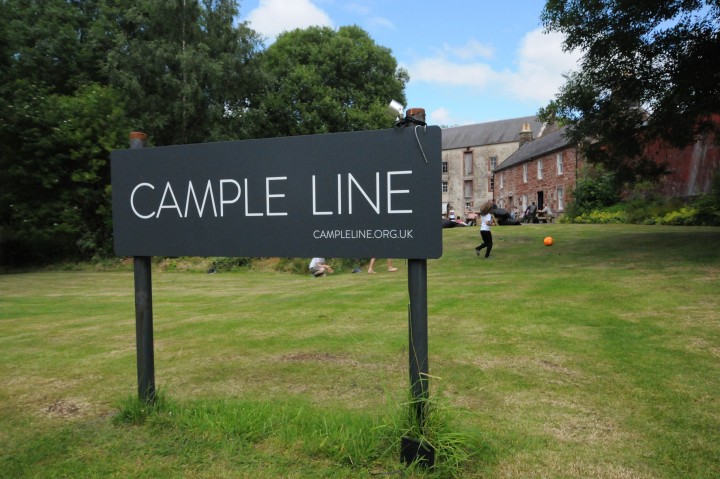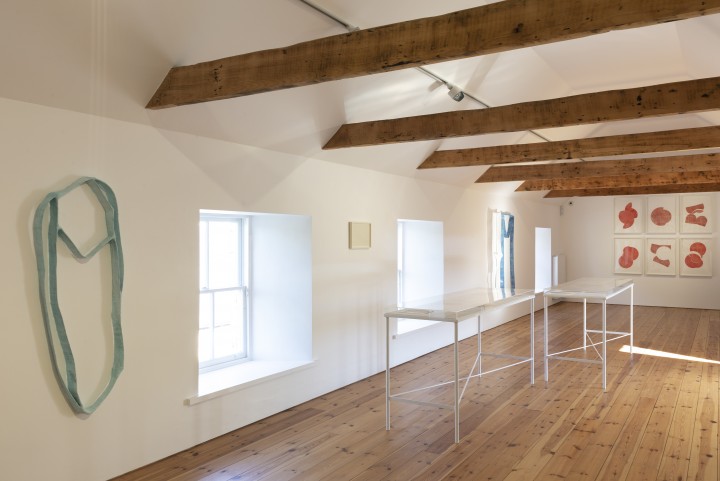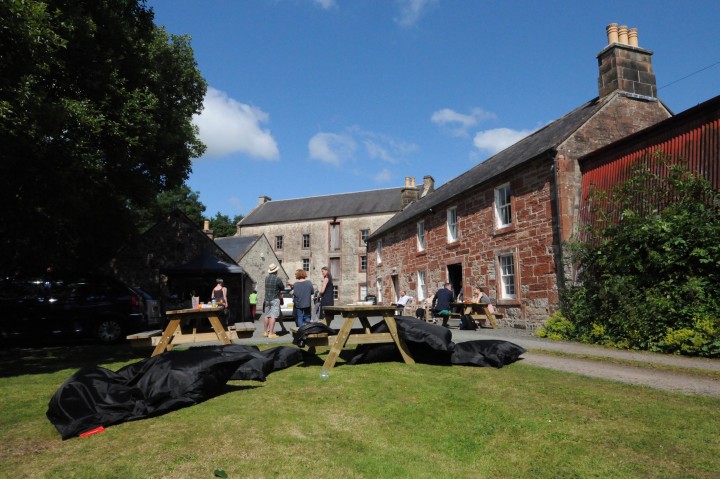Scottish Art News
Latest news
Magazine
News & Press
Publications
Scottish Art Unlocked: Tina Fiske on CAMPLE LINE
By Tina Fiske, 01.07.2020

We were on the brink of opening Helen Mirra’s exhibition Acts for placing woollen and linen when the lockdown measures were introduced. We had a board meeting the previous week which had galvanised the team to prepare things as much as possible. Our film co-ordinator Emma Dove shot additional footage for the short exhibition film she was finalising, and the last occasion our team was in the building was to record a narration with Lucy, our Engagement Assistant, to be added to the film. Lucy was due to sit her final school exams this May and was anxious. Yet, her narration has a remarkably steady tone, a resilient quality that a good many people who have watched the film over the last 12 weeks have remarked upon.
It was tough to postpone or cancel so much planned activity. In the very initial uncertainty before the UK Government announced its series of financial support measures, we felt anxious about adding to the impact on those with freelance livelihoods. Moreover, the timing for us was not auspicious; we were awaiting a number of funding outcomes in late March – mid April, and gradually we heard from each funder either with a note of delays in decision-making or, very understandably, to ask whether we wanted to withdraw our applications and re-apply to repurposed funds. Where we already had funding pledged, those funders have extended deadlines, but currently our situation beyond the short term remains uncertain.
 From Narrow Provinces, CAMPLE LINE, autumn 2019. Image courtesy Mike Bolam.
From Narrow Provinces, CAMPLE LINE, autumn 2019. Image courtesy Mike Bolam.
Our team felt very strongly that, given our rural location, we should remain as visible and active as we could, especially as a resource for those most immediately around us. We were fairly well prepared for remote working - perhaps this is a consequence of being a small rurally-based team and organisation. Although the Covid-19 pandemic has accelerated our move towards online programming, we had already begun to take steps to develop our digital capacity and provision as a means to help us engage and offer opportunities to those who cannot attend our building or programme in person. Where the activity we were able to develop online over April and May served the immediate circumstances, it has also enabled us to consider what a ‘blended’ longer term approach would entail and how it could impact who we are able to reach and include, how and where they access our programme and how we support them to do so.
Over the last 12 weeks a sharing of leadership has occurred within our team, which has been immensely positive and driven by where the skills are, and although we have necessarily been working remotely from one another, the nature of our co-working has been transformed. As measures gradually begin to ease, and with the reality of global recession, the challenges for organisations are manifold – how do they re-envision their programmes and reconfigure their spaces in light of a continued severity of risk to public health and the likelihood of greatly reduced funding and resources. The pressure that these will place upon the support that organisations can offer artists, filmmakers and creatives, as well as upon the means that they have to ensure equality of access, participation and inclusion, especially for the most vulnerable around us, will be significant.
In what ways can greater collaboration help keep culture sustainable and inclusive, and how do we as an organisation adapt and reset our ways of working? Moreover, in the context of the global protests resulting from the death of George Floyd in the US, it is more urgent than ever that we examine and educate ourselves and that we re-articulate our fundamental duties in respect of equality, diversity, inclusion, dignity and safeguarding, and embed these in every aspect of what we do, how we do it, where we do it and with whom.
 CAMPLE LINE, exhibition opening July 2019. Image courtesy Thomas Goldsworthy.
CAMPLE LINE, exhibition opening July 2019. Image courtesy Thomas Goldsworthy.
For more infomation aout CAMPLE LINE and their future programme, visit their website. To read more from art leaders across Scotland speaking out for the first time on the impact of Covid-19, visit SCAN.




